Watch 3 'BIRDS' Take Flight from the International Space Station
Fly, BIRDS cubesats, fly!
Three small cubesats were released into low Earth orbit last week as part of a program that helps countries build their first satellites.
For this mission, called BIRDS-3, the Japanese Small Satellite Orbital Deployer (JSSOD) ejected the tiny satellites outside the Kibo module of the International Space Station using a robotic arm on June 17. The batch of cubesats included Nepal's first satellite, NepaliSat-1 and Sri Lanka's first satellite, Raavana-1. The third cubesat, Uguisu, is from Japan.
The cubesats arrived at the ISS earlier in April on board Northrop Grumman's Cygnus cargo spacecraft as part of 7,600 lbs. (3,447 kilograms) of supplies for the Expedition 59 crew, which included science experiments and other cargo.
Related: Cubesats: Tiny, Versatile Spacecraft Explained (Infographic)
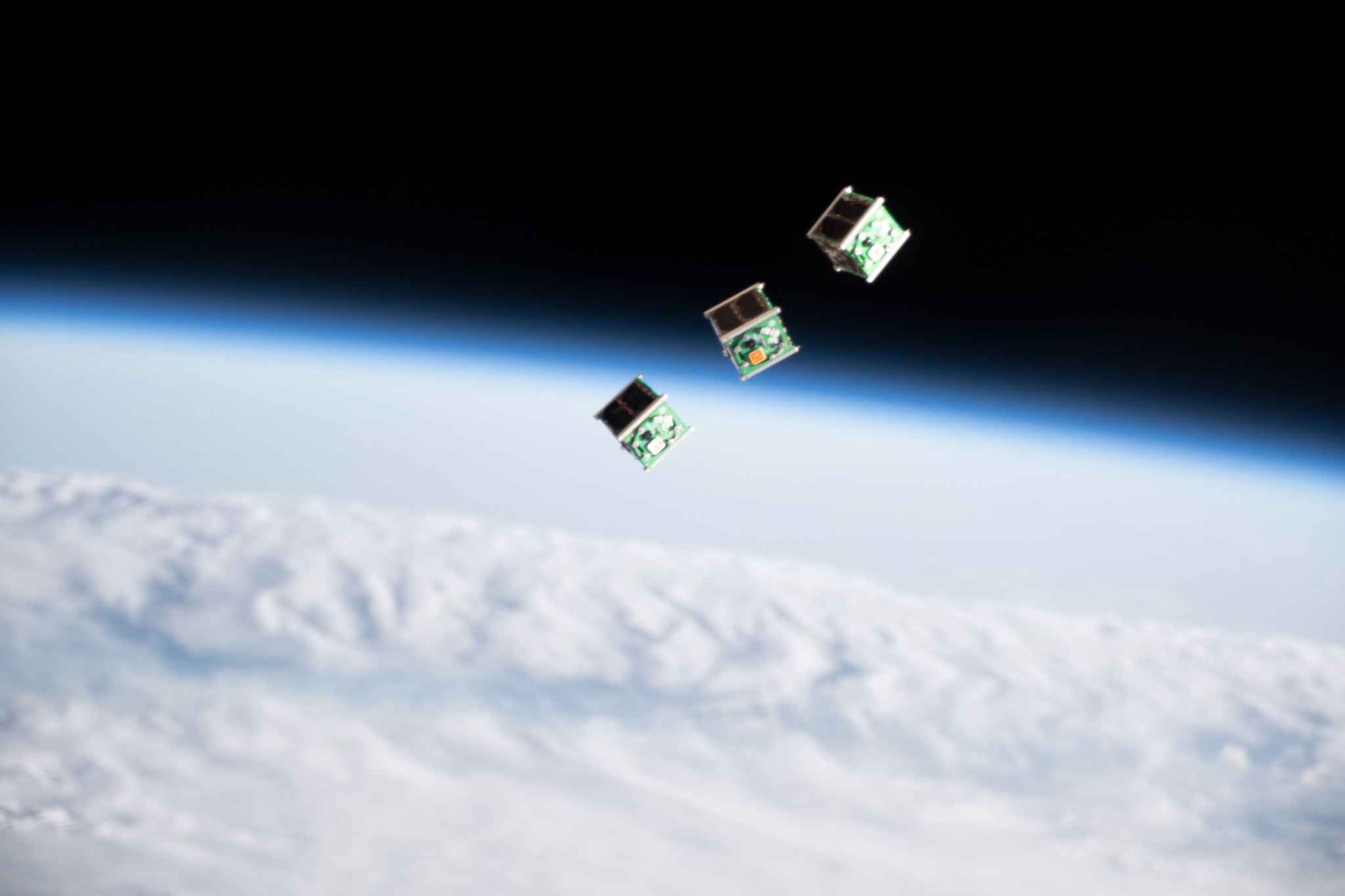
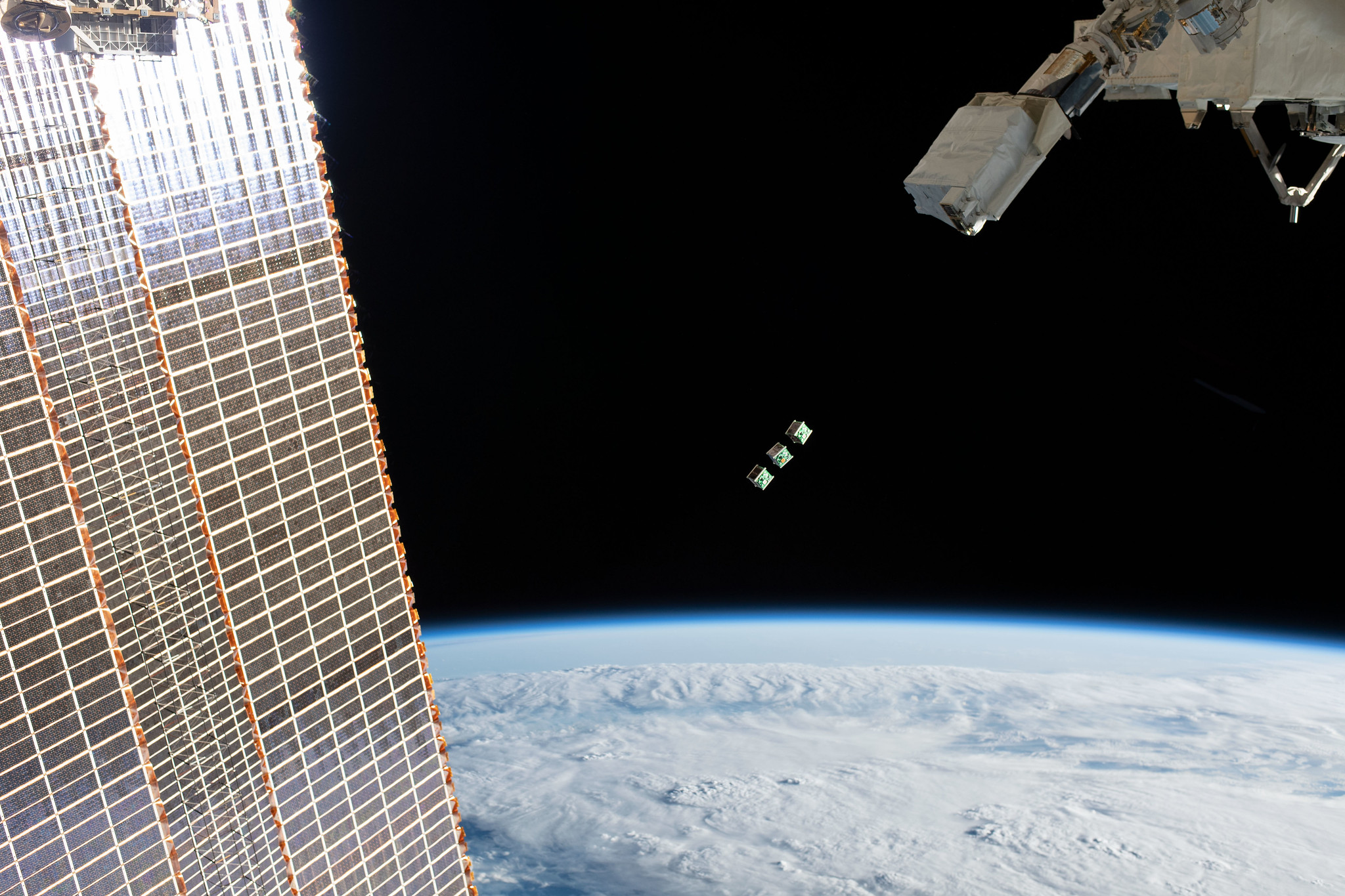
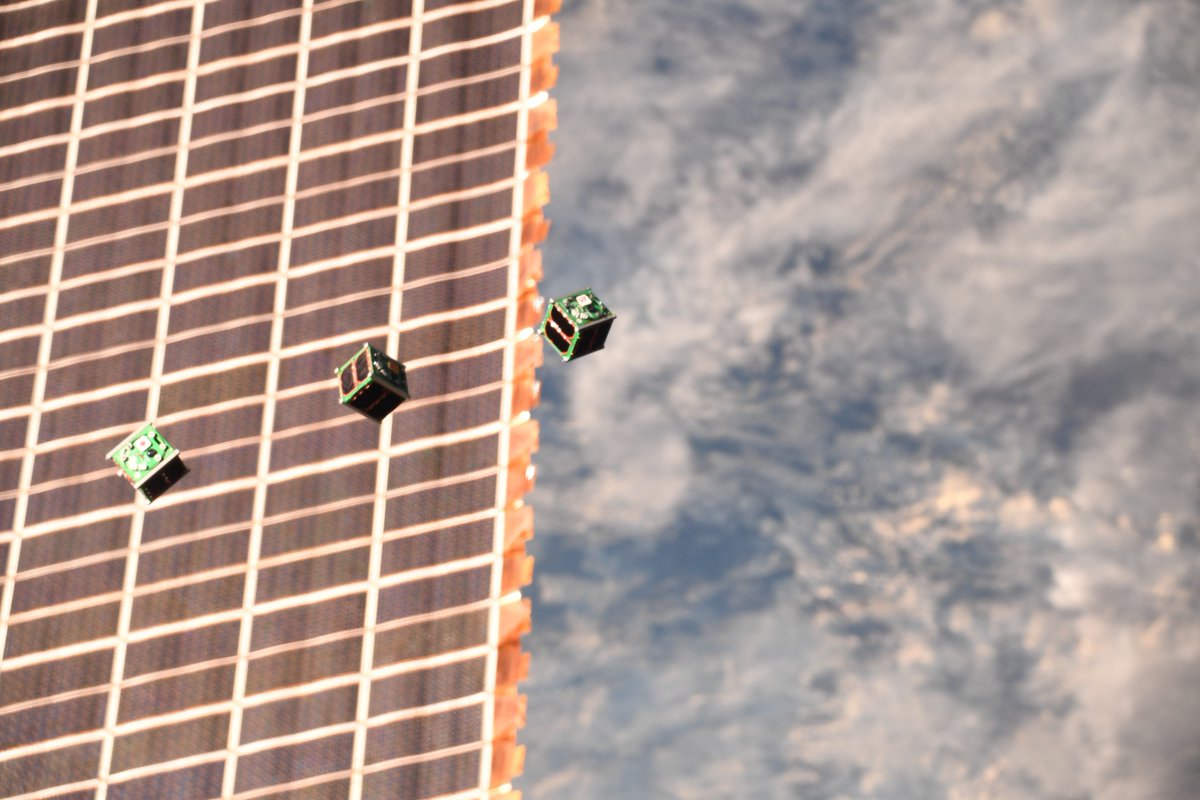
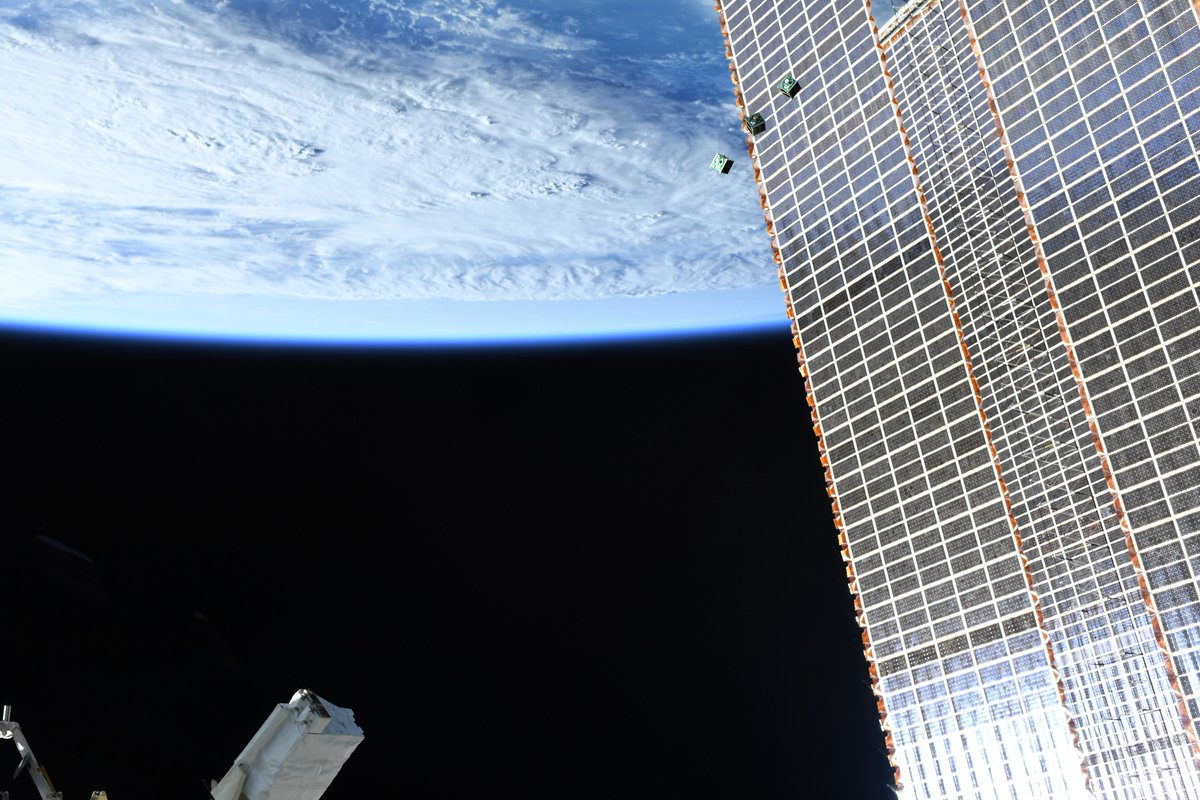
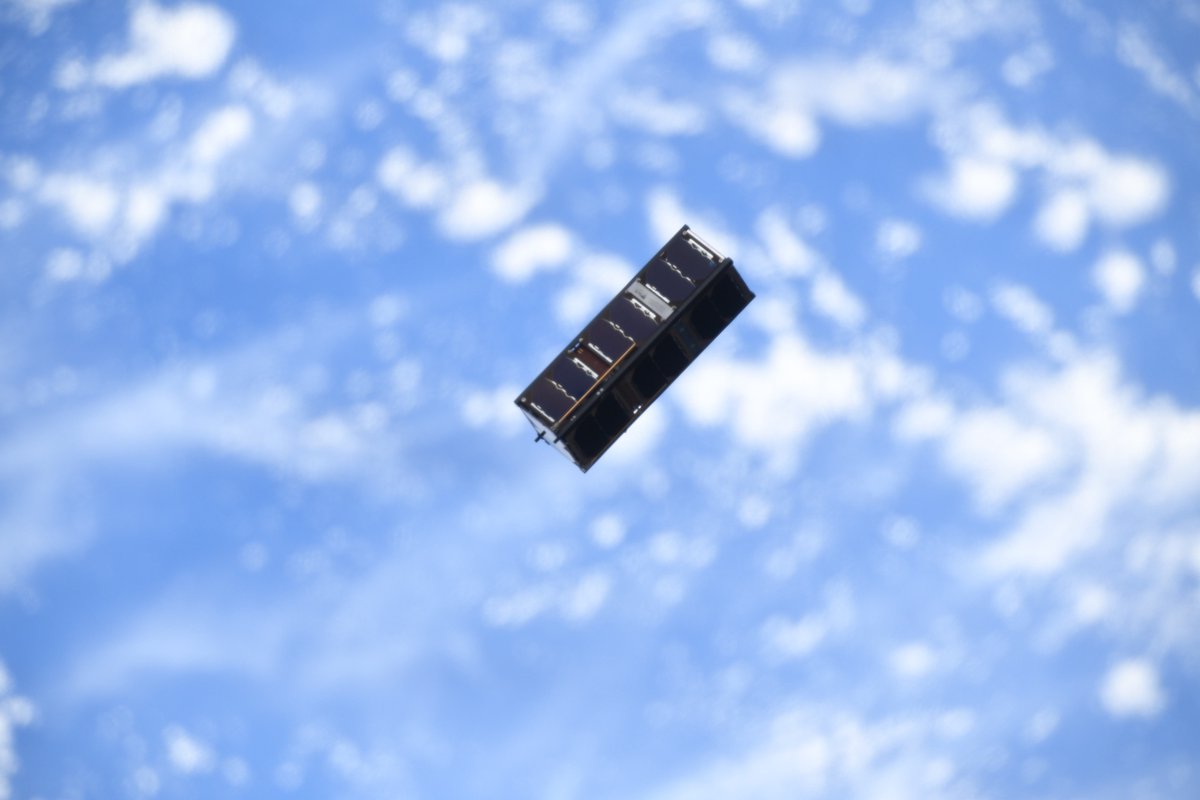
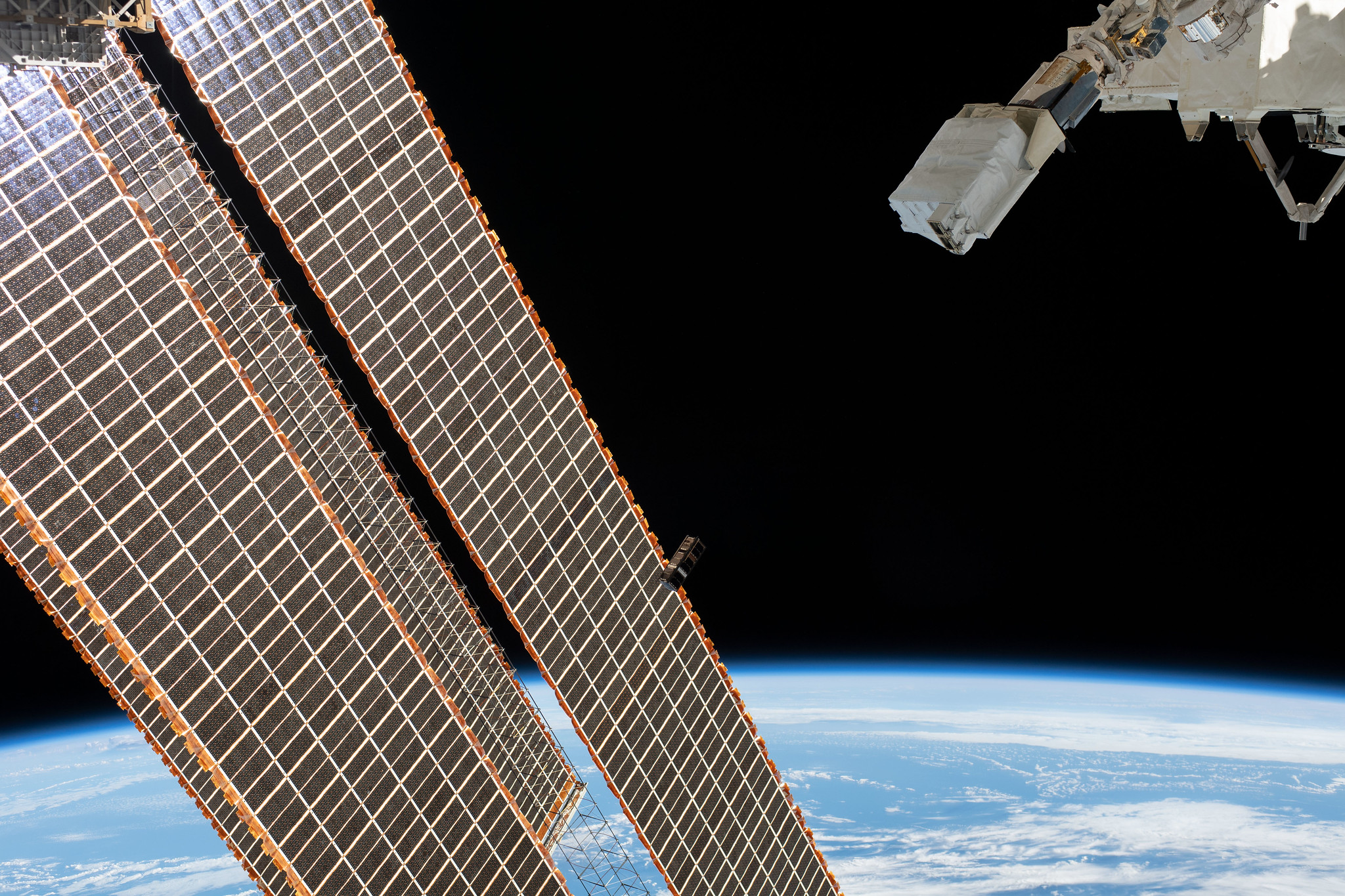
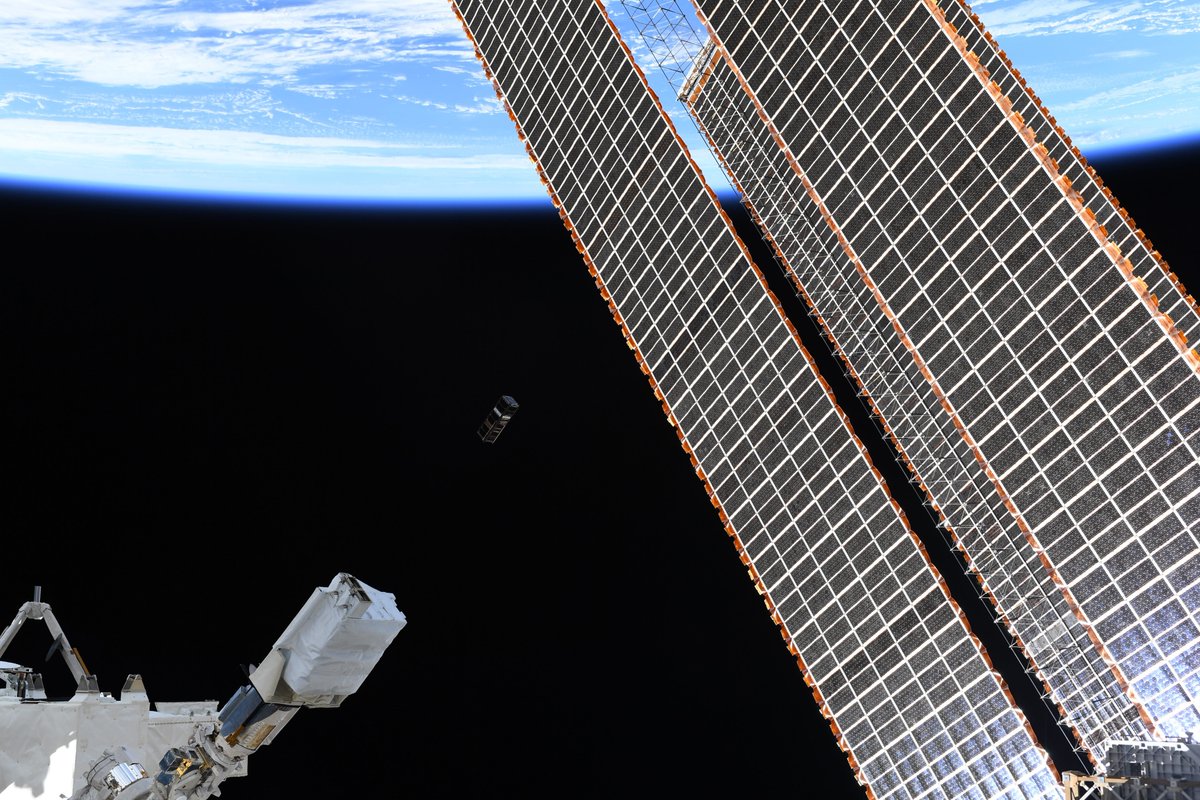
The cubesats will send short, ciphered messages on their radio-frequency band as well as collect data, such as monitoring water levels in flood-prone areas and conducting measurements of Earth's magnetic field, according to The International Amateur Radio Union.
The mission is the first of its kind to deploy small satellites from an orbiting space station, according to a statement from NASA. The agency added that the JSSOD can deploy the satellites to space as well as bring back small objects and samples to Earth for testing and analysis.
Three crewmembers aboard the ISS, Anne McClain, David Saint-Jacques and Oleg Kononenko, returned to Earth today (June 24) after completing their time aboard the station, according to NASA.
Get the Space.com Newsletter
Breaking space news, the latest updates on rocket launches, skywatching events and more!
- The International Space Station: Inside and Out
- India Follows Anti-Satellite Missile Test with 29-Satellite Launch
- Tethers Unlimited Developing Satellite Servicer for LEO Missions
Follow us on Twitter @Spacedotcom and on Facebook.
Join our Space Forums to keep talking space on the latest missions, night sky and more! And if you have a news tip, correction or comment, let us know at: community@space.com.

Passant Rabie is an award-winning journalist from Cairo, Egypt. Rabie moved to New York to pursue a master's degree in science journalism at New York University. She developed a strong passion for all things space, and guiding readers through the mysteries of the local universe. Rabie covers ongoing missions to distant planets and beyond, and breaks down recent discoveries in the world of astrophysics and the latest in ongoing space news. Prior to moving to New York, she spent years writing for independent media outlets across the Middle East and aims to produce accurate coverage of science stories within a regional context.









